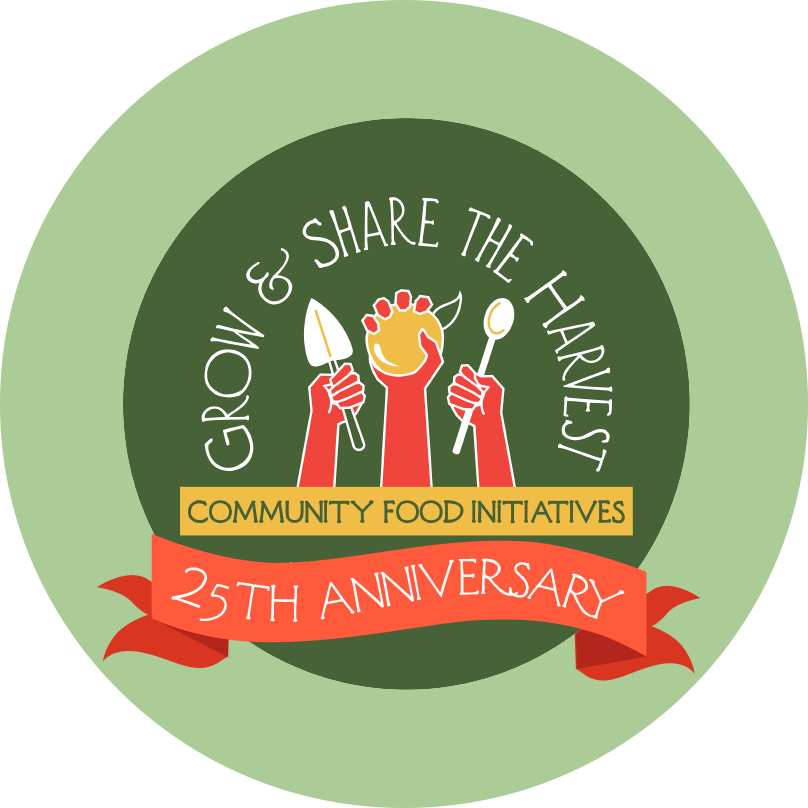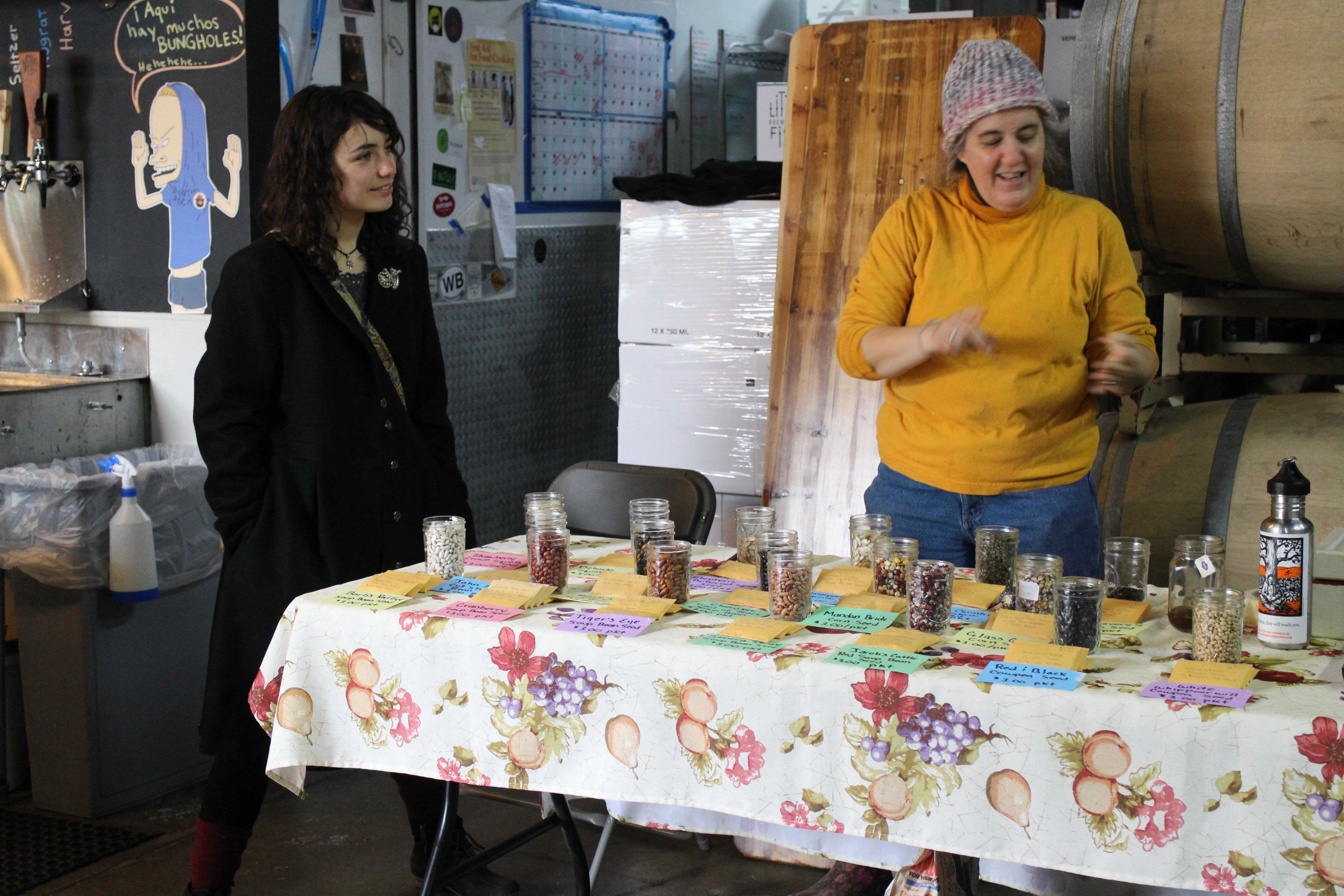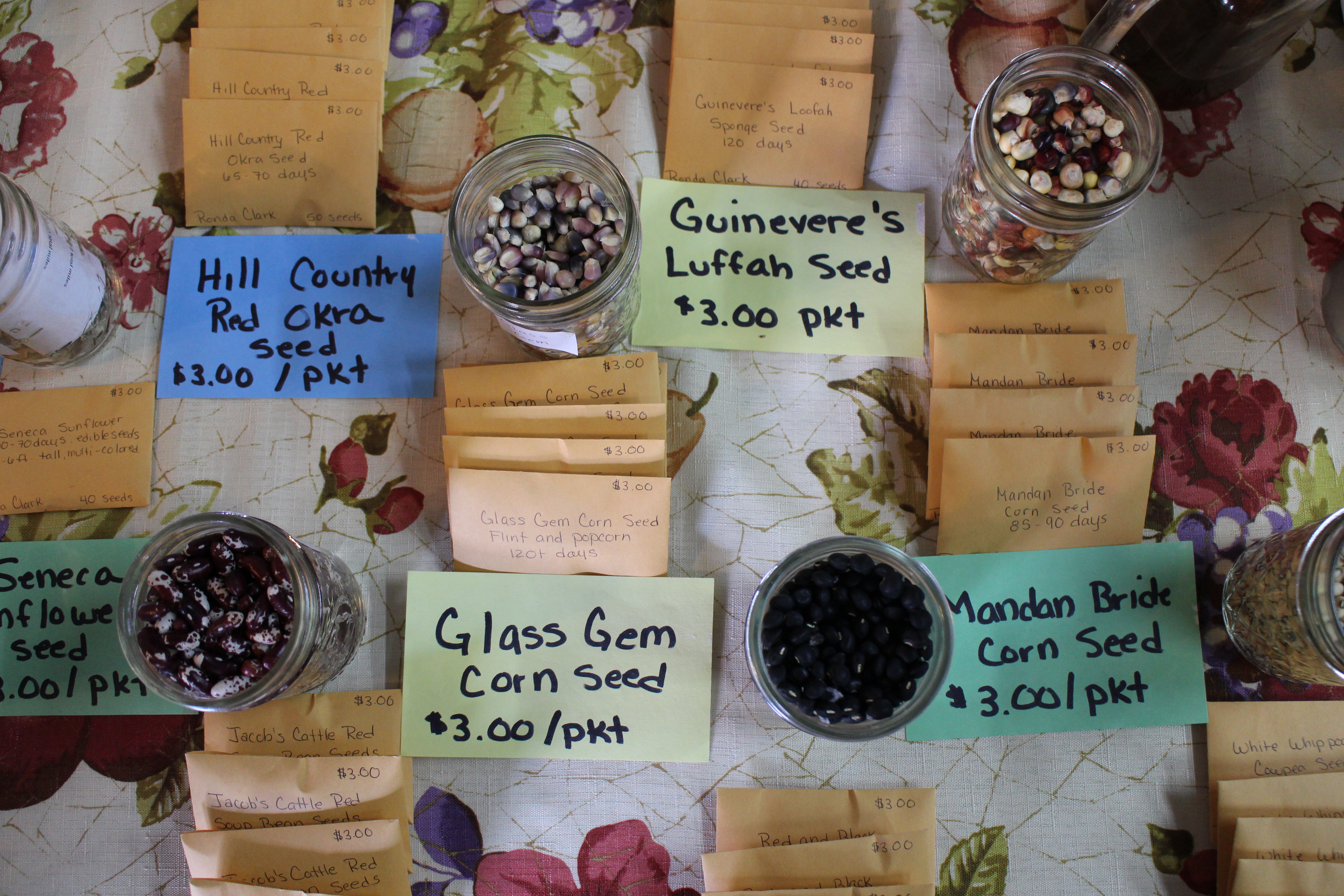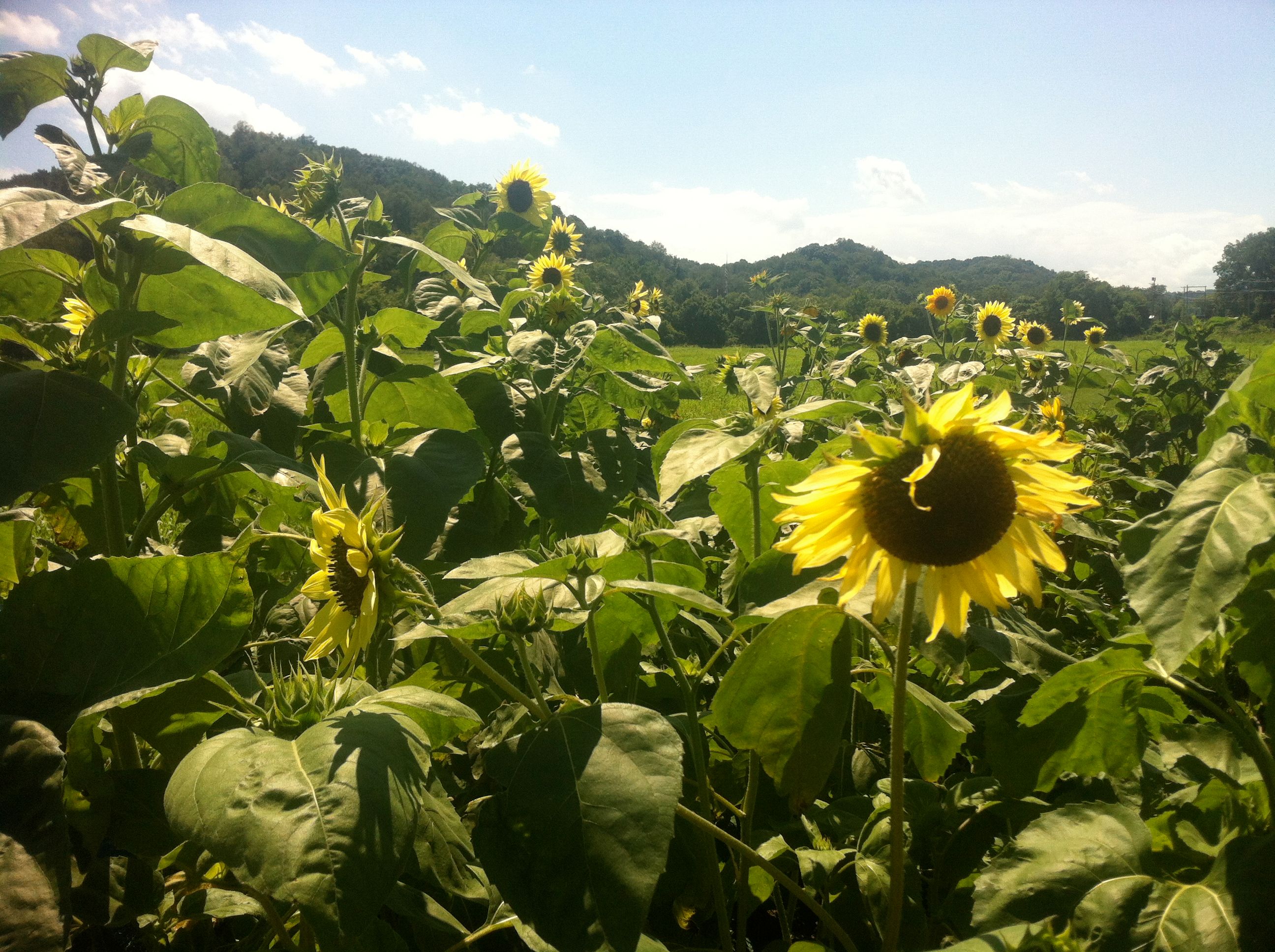
Exploring Our Roots with Ronda Clark
For the past 25 years, Community Food Initiatives has been an integral part of the local food economy. In celebrating this milestone for our organization, we are reconnecting with some of our past staff, and we will be sharing their stories over the next several months and “Exploring our Roots.”
Ronda Clark was the Executive Director of CFI from 2003-2012. It was during her time at CFI that many of our current programs, including the Donation Station, began. During Ronda’s time at CFI, she was particularly passionate about fighting food insecurity by supporting local farmers and saving seeds. She continues to be one of the primary seed savers we work with today! Read more about her time with CFI in the interview below.

What was your role at CFI?
I was the Executive Director from 2003-2012. The organization had a difficult time right before I got there with the previous coordinators. The organization also had a lack of identity –-it was trying to establish itself as different from Rural Action and ACEnet but still connected to those organizations. My time at CFI was really about establishing different programs to help give us an identity. We started the Donation Station [in 2008], and although the community gardens had always been a part of CFI, we created maps and documents to give the program more form. We also got the gardeners together to create a sense of community. That first happened with the West Side garden and now that garden is on it’s own. We also had the East Side garden and the one in Glouster, Chauncey, and a few others outside of Athens. The YEAH! Kids also came out of the community gardening and school gardening. Then we had the Seed Savers, so we really expanded CFI’s programs while I was there, that was the goal.
What were some of your favorite memories at CFI?
The YEAH! Kids and the summer feeding site at Hope Drive was a really great experience. We tried to keep it educational and balanced. It all was pretty amazing. I had three children while I was at CFI. The Seed Saving, Donation Station, and YEAH! Kids are probably the programs I enjoyed the most. And they’ve stuck around as a part of CFI. The Donation Station is a really great project. It has great impact – who doesn’t want a job handing out food like that?
We had a big workshop component too. CFI has always been known for giving workshops on skills that people might not have like how to make mayonnaise, how to deal with horseradish, or how to put seeds in flats. We would start out in the spring and have anywhere from 20-30 workshops each year. Most of them were in the summer, because that’s when things are growing. That was a big component that took us some time to get up and running again when I arrived.
What does CFI contribute to the community?
CFI teaches people how to be self-sufficient in their food production in order to be healthier, richer, and happier. It’s about learning how to grow your own food and get back to real food, almost to the point of the homestead days, when we could produce all of our own food and we relied on our neighbors to help us do that. That type of living fights poverty and obesity, increases overall health, and makes for a society less-reliant on technology; that’s really the dream. But the heart of it is to teach people to be more self-reliant in their food production.

Where do you see CFI going in the future?
I think the idea to spread the Donation Station to other communities to reach other places is a great place to start. I guess it’s possible that the Donation Station could eventually become it’s own non-profit, the way that Reuse came from Rural Action. I see it as such a magnificent program that it could become its own organization down the road. CFI’s also become a kind of seed bank with the seed saving, which seems to fill a need in what the community wants for seed saving. That’s an important program; everything is based on the seed. It all boils down to the seed and the soil; the soil will be there, but if you run out of seeds you’re done. That is food insecurity right there, so doing anything to help save seeds fights that. Those are two really important areas I see with room for growth.
What have you been doing since CFI?
I’ve been saving seeds, farming, and raising three daughters who are primarily homeschooled. So I’ve been really busy here taking care of the house and trying to make money without leaving the farm, that’s always been my goal.

